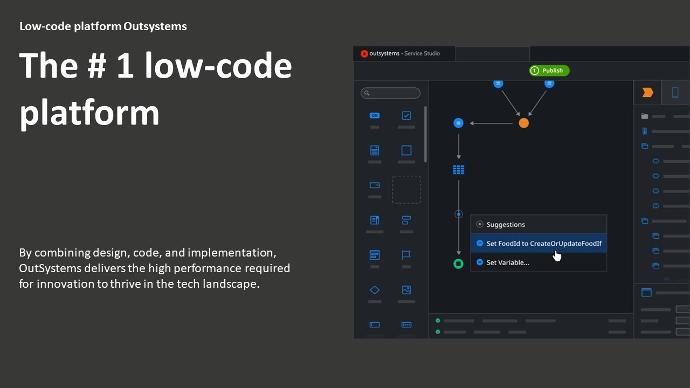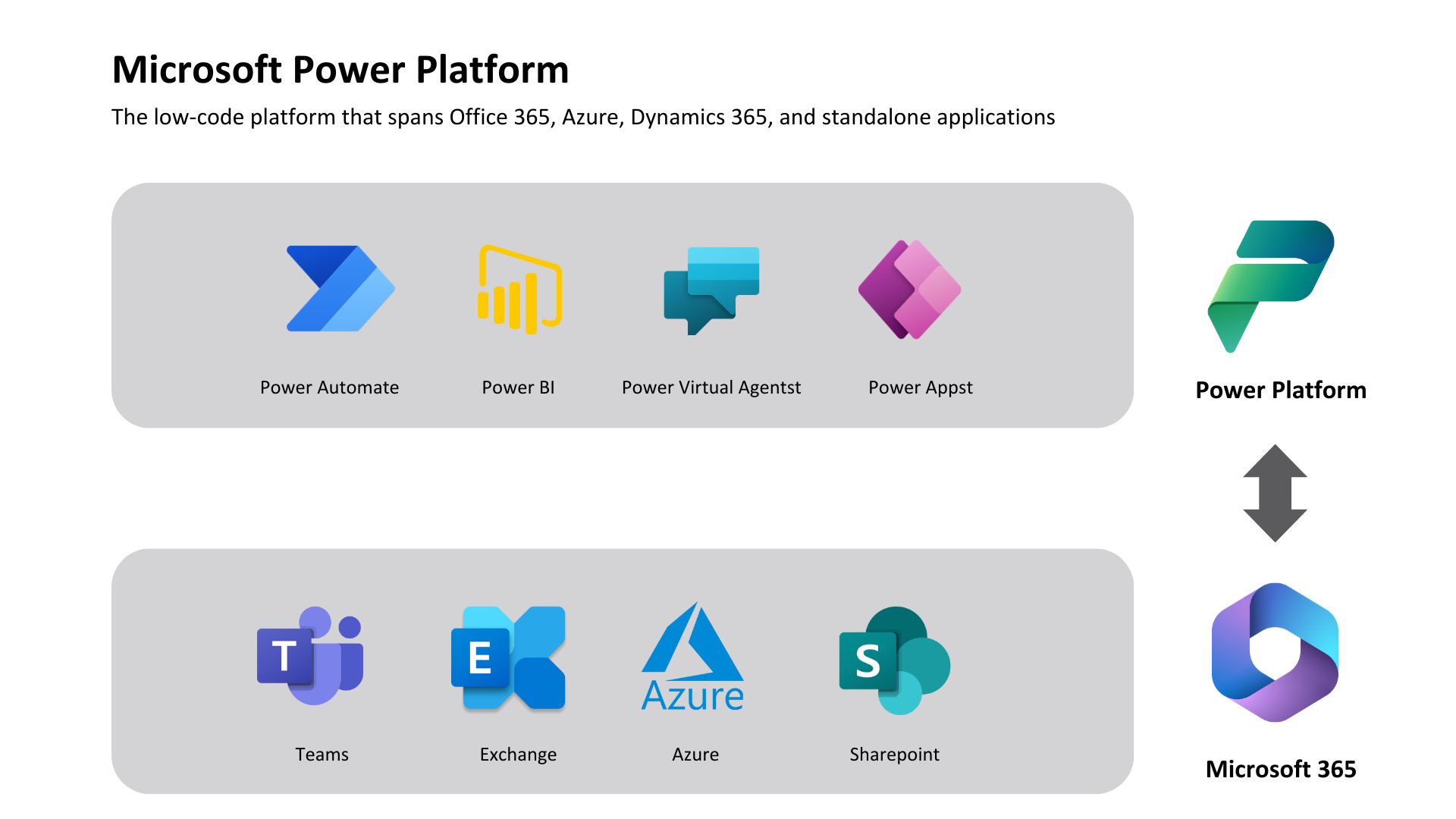Traditional Coding
Low-Code
No-Code
Outsystems Low-Code Platform
Visual development approach for all segments with high-quality and high-performance web/mobile solutions.
OutSystems is a modern application platform.
- Build Fast - Serious productivity.
- Build Right - Serious applications.
- Build for the future - A platform for change.



Microsoft 365 - Power Platform
- Focus on citizen developers ready to create code-free applications for daily automation.
- Expansion into company departments with the aid of development in the YNT methodology.
- Full company-wide expansion with .NET/Automation.
Development of software solutions
ODC Enviroment
Web Application
Mobile Application
Project SAP Integration
Consultancy Assessment
Project Assessment
UI/UX Assesment
Project Foundation
Expert Services
Enterprise Architecture Design
App Migration
Platform Installation
Platform Update
Health Check
Common questions about low-code:
Low-code development is an approach to software development that uses visual development tools and drag-and-drop interfaces to build applications with minimal hand-coding. It enables developers and non-developers to create applications quickly and efficiently by abstracting complex coding tasks, reducing the traditional development effort significantly.
Low-code platforms offer several benefits, including accelerated application development, reduced development costs, improved developer productivity, and faster time-to-market. They also facilitate collaboration between business users and IT teams, allowing for rapid prototyping and iterative development.
Low-code platforms typically come with built-in security features, such as role-based access controls, encryption, and data protection mechanisms, ensuring that applications developed with low-code are secure. Additionally, modern low-code platforms are designed to be scalable, allowing applications to handle increased user demands and growth.
Yes, low-code platforms often support integration with existing systems, including legacy applications, databases, and APIs. This capability enables organizations to leverage their current technology investments while adding new functionality through low-code applications.
Low-code development streamlines the application development process by simplifying tasks that would typically require extensive coding. Developers can focus on high-value tasks while the platform handles repetitive and time-consuming activities. This efficiency leads to faster application development and shorter time-to-market for new products and features.
Low-code development can be beneficial across various industries and use cases. Some of the industries that benefit the most from low-code include:
a. Financial Services: Low-code enables the creation of customer-facing applications, financial reporting tools, and risk management systems.
b. Healthcare: Low-code can be used for patient management systems, electronic health records (EHR), and telemedicine applications.
c. Manufacturing: Low-code platforms help in building supply chain management, inventory tracking, and production planning systems.
d. Government: Low-code is useful for developing citizen-facing portals, public service applications, and permit/license management systems.
e. Retail and E-commerce: Low-code can be utilized for building online shopping platforms, inventory management systems, and customer support applications.
f. Education: Low-code enables the development of e-learning platforms, student management systems, and educational portals.
g. Human Resources: Low-code is beneficial for HR applications like applicant tracking systems, employee onboarding, and performance management.
h. Transportation and Logistics: Low-code can be used for route optimization, fleet management, and logistics tracking systems.
These are just a few examples, but low-code's versatility and ease of use make it a valuable tool for numerous industries and a wide range of use cases.
Yes, adopting low-code platforms can result in significant cost savings. By reducing the need for extensive coding and custom development, organizations can cut development time and resources. Moreover, low-code platforms enable rapid iterations and updates, reducing maintenance costs and improving overall return on investment.
Getting started is easy. Just reach out to our expert low-code presales, and we'll guide you through a seamless implementation process. Whether you're a developer or non-developer, our intuitive platform makes building applications a breeze. Plus, our dedicated support team is here to help every step of the way. Let's unlock the potential of your organization with low-code innovation today! Contact us now!